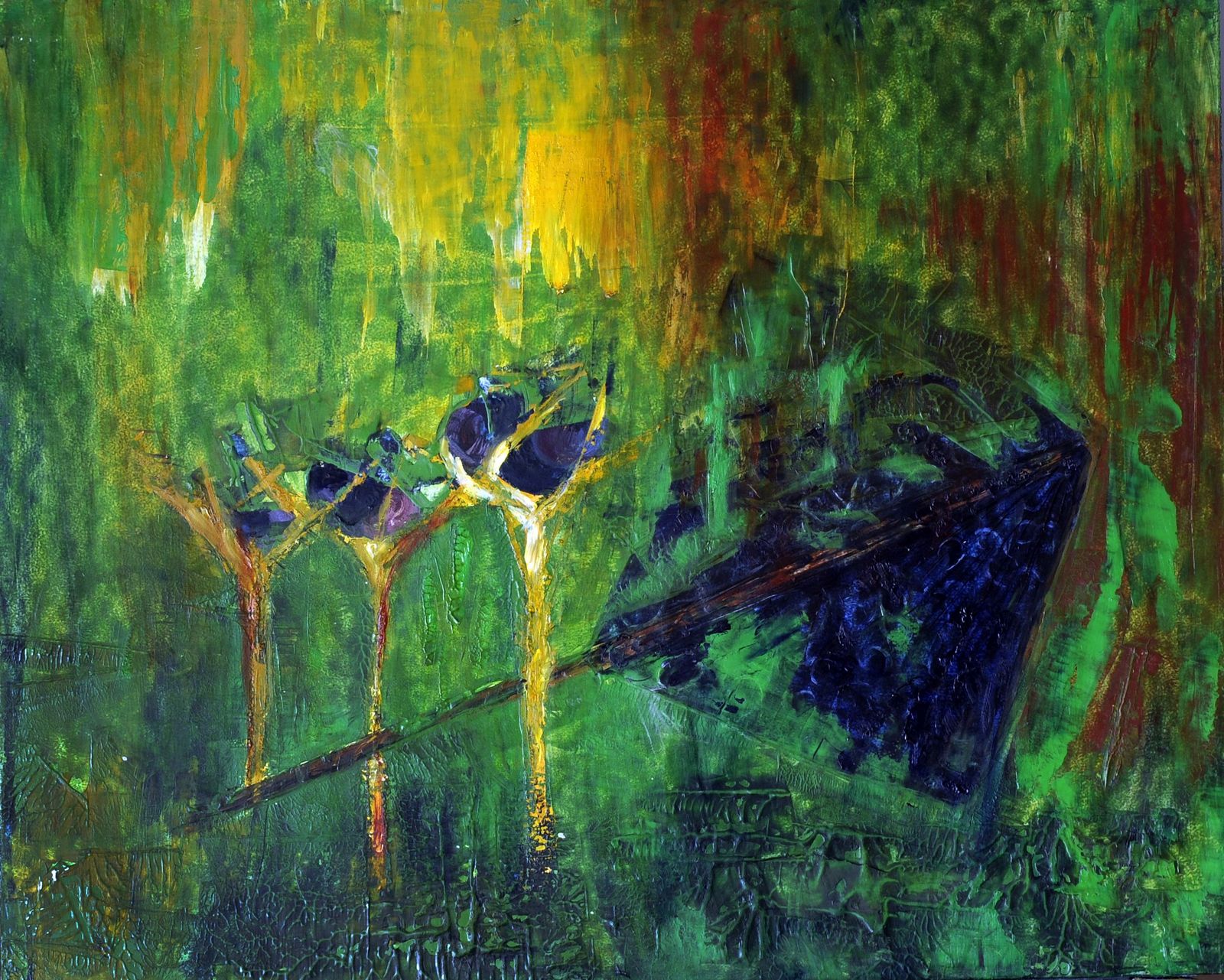The sources of inspiration for this cycle, or rather, musical theater, are prose works and poems by Doron Rabinovici, Rose Ausländer, Nelly Sachs, Viktor Ullmann, Karl Kraus, and Robert Schindel, which I have associatively combined to create a "piece in several scenes," as well as compositions by Viktor Ullmann.
In particular, the Andante of Viktor Ullmann's 5th Piano Sonata, composed in the Theresienstadt concentration camp, functions in the middle section of the piece (Der fremde Passagier) as a kind of "wallpaper," which Karl Kraus speaks of in his poem Vor dem Schlaf, and against which the "plot" of the composition unfolds, like a stage set in the theater space. Ullmann placed the first verse of this sonata as a "motto" for the second movement.
So spät ist es, so späte, / was werden wird, ich weiß es nicht.
Es dauert nicht mehr lange,
mir wird so bange,
und seh' in der Tapete
ein klagendes Gesicht.
Allein bin ich, alleine, / was außerhalb, ich weiß es nicht.
Ach, daß mir's noch gelänge,
mir wird so enge,
und seh' in jedem Scheine
ein fragendes Gesicht.
Nun bin ich schon entrissen, / was da und dann, ich weiß es nicht,
ich kann sie nicht behalten
die Wahngestalten
und fühl' in Finsternissen
das sagende Gesicht.*
Der fremde Passagier describes the journey, at varying tempos, through the landscapes of this music and the instrumental thoughts and reflections that arise in the process. Against the backdrop of the movement Ullmann also calls a Notturno, the work unfolds as a composed investigation, a sonorous, precise analysis of the meandering harmonies and polyphonic structures, the results of which, however, are not yet foreseeable, still "unheard of," and are themselves works of art. They could resemble a fully composed echo of Ullmann's Andante, the reverberation this music triggers in me, which develops its own momentum and, through the baritone's voice, illuminates the authors' words amidst the new structures...
While listening, allusions to other works by Viktor Ullmann that I particularly love might arise, such as the Quasi marcia funebre of the First Piano Sonata, his Piano Concerto, the Violin Sonata, which only survives in fragments, the Third String Quartet, also composed in Terezin, the Cornet, or The Emperor of Atlantis.
The reception of Ullmann's pieces is closely linked to Terezin. A large part of his surviving oeuvre was created under the horrific conditions of the camp, which the Nazis staged as a "theater of deception" for the outside world. Theater and music performances were possible there. An international delegation from the Red Cross was duped with the lie "The Führer is giving the Jews a city."
The content, the original depth of Ullmann's compositions, however, is immediately communicated to the listener, entirely without knowledge of his biography. Nevertheless, my composition by no means obscures the historical component. For I also interpret Viktor Ullmann's sounds of that period as messages:
I perceive them as communications cynically permitted by the National Socialists and, at the same time, as "treasonous messages" from an artist caught between deception and spiritual resistance.
In their delayed "arrival", Ullmann's compositions, repressed for years, resemble the countless letters that the protagonist in Doron Rabinovici's story Nachsendungen finds in his deceased mother's mailbox from his relatives years after their murder. Like these "messages" from those deported to concentration camps, Ullmann's work was only revealed to the world, or rather, made audible, decades after its creation. A separate section of the composition is dedicated to these "follow-up messages."
…und fühl in Finsternissen das sagende Gesicht was created for the singer Steven Scheschareg, whose parents had to flee the Nazis and who has championed the music of the murdered, displaced, and forgotten in numerous concerts. He interprets contemporary music with equal acumen and passion. The timbre and character of his voice serve as essential inspiration for the physiognomic design of this music. Often, the singer's breath seems to sweep over the harmonies, causing them to ripple and thus breathing life into the emerging structures and ramifications. In keeping with the different sections within Ullmann's Andante, my composition is cyclical. Each movement, each "chapter" corresponds to a section.
Texts by Rose Ausländer, Karl Kraus, Doron Rabinovici, Nelly Sachs, Robert Schindel, and Viktor Ullmann are "set to music." Elisabeth Holzer created a visual installation for several sections of the cycle. In September 2025, parts of this composition cycle, which form a coherent whole, will be premiered at the Reaktor as part of the Ensemble Reconsil concert series under the direction of Antanina Kalechyts and with Steven Scheschareg.
*from: Karl Kraus, Die Fackel, 1919
